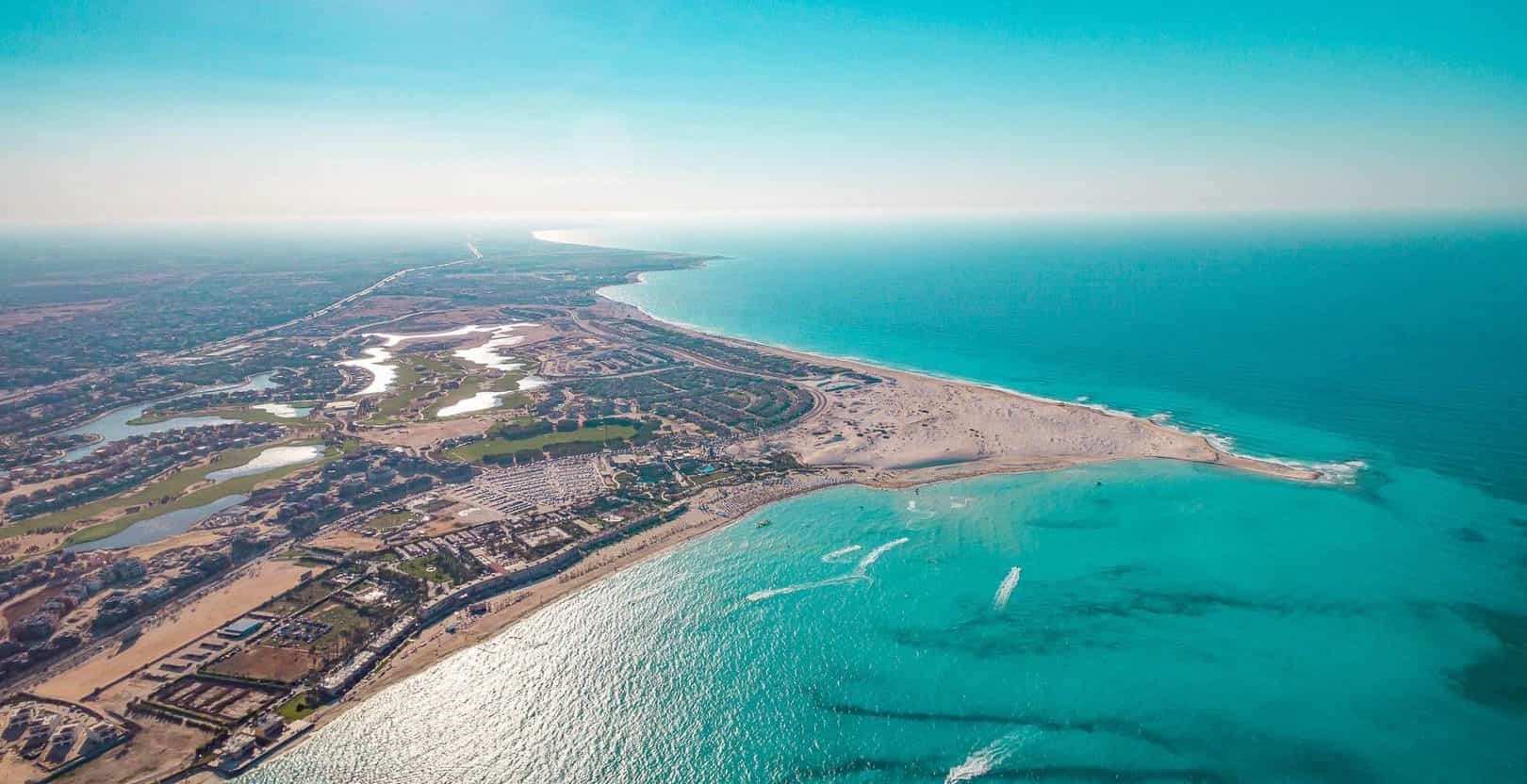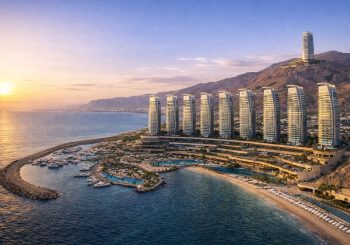A decade ago, a trip to Egypt’s North Coast was simple. Whether you were staying in a rented chalet or just visiting for a few days, getting into most compounds was a matter of knowing someone or speaking to a security guard at the gate. Beaches were more accessible, and while many areas were still gated, entry felt more flexible and informal.
Today, reality is different.
Many newer compounds now operate with QR code systems. One code is needed to enter the gated community. Another, sometimes entirely separate, is required to access the beach. If you are not a property owner or registered guest, access is restricted and, in most cases, denied.
QR codes have quietly reshaped the way people experience the coast. They are requested by security, issued through apps exclusive to owners, and sometimes shared between friends or resold online. A day at the beach now often depends on whether you can obtain the right pass.
A New North Coast
The North Coast of Egypt, overseeing the Mediterranean Sea, has always had gated communities. Yet, the system at the gates was different as it was not built to keep people out as much as it was to give people inside a sense of order. You could almost always talk your way in, or know someone who knew someone. It wasn’t democratic, nor was it aggressively exclusive either.
Then came the boom. In the last decade, new high-end developments began popping up every few kilometers closer to Marsa Matrouh: Swan Lake, Marassi, Hacienda, SeaShell, the list goes on. With them came a shift in culture, pricing, and access that no longer seem like vacation spots. Rather, they’ve become status symbols, built for a very specific demographic and shaped heavily by Western aesthetics such as manicured lawns, boho-chic aesthetics, and Ibiza-style beach clubs.
But for all the Western influence, one major difference stands out: in Europe, the beaches remain for the most part public. In Spain, France, or Italy, you can throw a towel on the sand without needing a digital pass.
In Egypt’s North Coast? Unless you are personally acquainted with a property owner, the sea comes with a price tag.
Prices reflect the exclusivity. A one-week stay in a mid-range North Coast chalet during the summer peak season can start at EGP 125,000 (USD 2,466), while higher-end options in compounds like Marassi or Hacienda can easily reach EGP 300,000 (USD 5,920) to 150,000 (USD 2,960) or more, for a mere week.
When the average monthly household income in Egypt is around EGP 14,000 (USD 284), entire stretches of the sea become financially invisible to most citizens. Segmentation, in this case, is not just about gates and QR codes, it is about who can afford to be there at all.
The QR Code Effect
It is easy to say, “it’s just a beach,” but the QR code system is a symptom of a more insidious reality. It reflects a broader reality where access, whether to services, space, or opportunity, is increasingly tied to networks, connections, and purchasing power. Even the coastline, a shared natural space, is gradually becoming segmented.
This is not unique to Egypt. In many parts of the world, beach privatization is a growing issue. Yet in places like Barcelona or Nice, public beaches are often well-maintained and protected by law.
In Egypt, while public beaches do exist, finding a clean, well-equipped, and easily accessible one along the North Coast can be difficult, especially if you are not staying in one of the major compounds.
Shifting Norms
For many, the current system is simply how things work now. Renting a chalet means asking for QR access. Visiting a friend involves confirming your name at the gate in advance. These layers of access control are rarely questioned, and have become part of the experience.
Still, the change is worth noticing. Over time, what was once a relatively open coastline has become more increasingly exclusive. What was once a casual day trip can now require planning, codes, and the right connections.
This is not idealizing the past. Urban development is expected. Standards rise. Security measures evolve. But the QR code system offers a small window into how class, privilege, and access quietly shape our everyday experiences.
Not everyone will reflect on what it means to need a digital pass to reach the sea. But the shift from spontaneous to structured, from shared to segmented, speaks volumes about how Egypt’s natural space is organized, and who gets to use it.
The opinions and ideas expressed in this article are the author’s and do not necessarily reflect the views of Egyptian Streets’ editorial team.
To submit an opinion article, please email [email protected].







Comments (0)